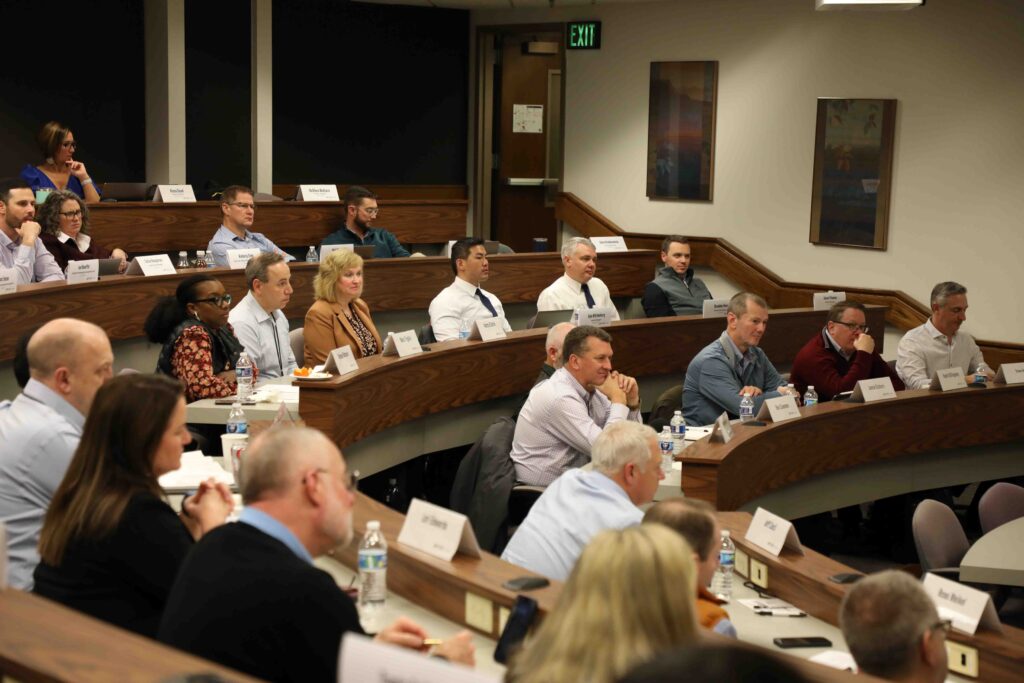Journal
Authors: Tore Strandvik, Maria Holmlund, and Ilkka Lähteenmäki
Journal and date: Business Horizons, Volume 61, Issue 3, May–June 2018
Reviewer
Dr. Michael Gunderson, Director and Professor
Summary
This paper addresses the ability of individual managers to deal with rapid change and how that influences the success of the firms for which they work. The authors introduce a tool that allows individuals and teams to self-diagnose their mindsets. Focused on two principal dimensions, strategic scope and focus, the tool also considers the offering, customer and market. The authors provide guidance for interpreting the results. In the article, the authors pose eight questions in the self-diagnosis tool. Once individuals have mapped their responses, there are nine strategic mindsets that managers can consider (see Figure 1).
What this means for Food and Agricultural Business
To outsiders, food and agriculture might not be an industry characterized by disruption. Industry insiders that I visit with at our Agricultural Retail Association and American Seed Trade Association management academies feel very differently. One can get whiplash keeping up with the many rapidly changing factors in food and agribusiness. There are changes in technology, personnel and talent, and internal processes. There is consolidation at every step of the value chain and dramatic changes in relationships among the larger more complex businesses that remain.
This article builds on a book Dr. Michael Boehlje has been extolling for years, Christensen’s The Innovator’s Dilemma: When New Technologies Cause Great Firms to Fail. Christensen and Boehlje warn established companies that continuing to do business the way it has always been done is a recipe for disaster into today’s markets. Incumbent firms will need to innovate or watch as upstart firms disrupt the market. This disruption has occurred in staid industries such as photographic film, computers, stock exchanges, and retailing. Increasingly, firms operating along the food value chain see upstart firms causing disruption. Sometimes this disruption even garners the attention of firms in Silicon Valley and fund managers at venture capital firms.
If we return to the figure of the nine strategic mindsets, I suspect many traditional agricultural managers would have a ‘transaction/company’ strategic mindset. The focus of the mindset is delivering products and services to similar customers. There is little differentiation and firms to no tailor solutions to individual customer’s needs. When every farm raised corn and soybeans on a section with similar equipment, this mindset worked well. It might even still work well near the food retail end of the value chain when McDonald’s handles supply chain functions for its franchisees.
As the industry has changed, however, more leaders of firms will need to adopt a relationship/customer view. As farms grow larger, retailers and input suppliers will need to transition into a relationship where value resides in customer-specific adjustments. A dairy nutritionist can no longer expect to share a standard ration across several 100-cow dairies. Instead, she must make specific adjustments based on the local feedstuffs the producer can access and the quality of the forages available. These types of relationships require more marketing and less selling.
Some leaders are even adopting a systems/interaction view. Here the firm co-creates wealth with customers over time. This mindset it valuable when the support solutions and platforms for interactions rapidly change. As the entire chain works to incorporate real-time data into decision-making, this mindset will allow creative leaders to move beyond providing solutions. Instead, the leaders will work with customers to improve the entire system. You see some examples of this as disruptive firms invite sophisticated farms onto advisory boards and R&D teams.
Have you already diagnosed your own mindset? Do you find one of the other six mindsets to be more prevalent or more important going forward? Email your thoughts, comments, and questions our way.



